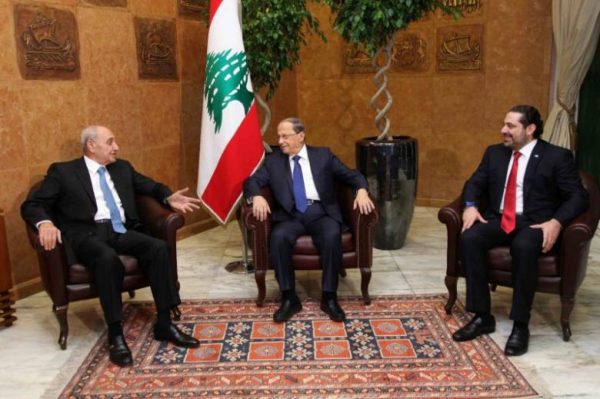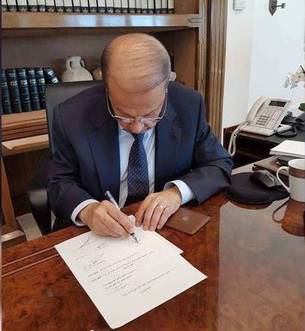
The dispute between Berri and Aoun emerged when the Speaker insisted that the Minister of Finance must sign a decree granting seniority to officers who graduated in 1994, while Aoun sidestepped the minister and signed the decree along with Prime Minister Saad al-Hariri, asking the objectors to resort to the judiciary.
Ministerial sources told Asharq Al-Awsat that the agreement to resolve the dispute was reached during a tripartite meeting on Tuesday between Aoun, Berri and Hariri, which was followed on Wednesday by another meeting between the premier, Minister of Finance Ali Hassan Khalil, Minister of Justice Salim Jreissati, Defense Minister Yaacoub El-Sarraf and General Security Director Abbas Ibrahim.
 The sources said that the new decree would carry the signatures of Aoun, Hariri, Ali Hassan Khalil and Yaacoub Sarraf, explaining: “The promotions and the seniority decrees will be combined and will carry the signatures of the concerned ministers.”
The sources said that the new decree would carry the signatures of Aoun, Hariri, Ali Hassan Khalil and Yaacoub Sarraf, explaining: “The promotions and the seniority decrees will be combined and will carry the signatures of the concerned ministers.”
They also stressed that the “seniority decree” would be considered valid, even if it was not published in the Official Gazette, pointing out that the proposal for merging the two decrees together, which was first submitted by Berri was a satisfactory compromise to both parties.
Meanwhile, the Cabinet will convene on Thursday to resolve pending issues, including proposed reforms included in the new electoral law.
In this context, Interior Minister Nohad al-Mashnouk said that Thursday’s session would tackle the suspension of work in the magnetic voting card by amending Article 84 of the new electoral law for one time.
The introduction of the magnetic card, which will also be used as a personal ID, is one of the most evident steps to computerize the electoral process in an attempt to get rid of corruption and manipulation of the elections by preserving the voter’s personal data and reading it electronically in various departments. The project is expected to cost around $130 million.
A Sharq al Awsat

Leave a Reply
You must be logged in to post a comment.